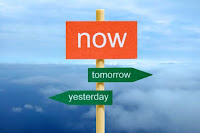By Derek Link, Non-Profit Consultant
The image of a warm fire crackling softly in the background, a golden retriever slumbering at his feet, perhaps even a hot cup of tea steaming beside the keyboard is the image of a grant writer’s days. No stress involved, just bucolic surroundings, creative narrative editing, just an aura of cerebral bliss, day-after-day.
Yeah, right. It’s more like a flue fire roaring, dog barking, cold forgotten teabag in a cup that was hot yesterday, piles of paper with scribbles and spotted with post-its, draft after red-edited draft scattered in loose piles on chairs and couches, and an impending deadline that is literally a deadline.
Grant writing, like most writing, can be romanticized beyond reality. Oh, there’s an art to it all right, but even art is mostly – as artists will tell you – about dogged determination and ongoing stubborn effort. Grant writing is all about striving with narrative to make it say what you want it to say in the way you want it to be said, and all within the confines of a page limit, a specific font size, and between margins of unbending width.
Grant writing is more akin to technical writing than to creative writing. Grant writing necessitates curbing your creative juices in order to stay on point and not stray off into irrelevant and space-stealing witticisms or flowery jibber-jabber. There is an element of creative writing to a grant because for the most part you’re writing about a program that does not exist yet, but effective grant narratives are mostly direct, expository copy in topic-specific, technical language.
I’ve had conversations with people about what I do and I tend to get this dreamy-eyed response from some of them. Their verbal response goes something like, “Oh, I’d LOVE to be a grant writer someday” as they mentally drift off to the study in fuzzy slippers. Their ignorance amuses me because I know the truth, but then I was there at one time myself.
Oh, don’t get me wrong. I am not masochistic and making a living writing grants as some form of monastic self-flagellation. I do enjoy it, but it is definitely a love-hate relationship. I love the challenge and hate the deadline. I love the research and hate the restrictions.I love the competition and hate losing. I love the fact that there is a financial reward for the client (and me). I do enjoy grant writing, but the romance was gone forever as soon as I got my first edit and response from my grant writing mentor.
In my pre-grant-writing-career fantasies I had imagined finishing a sparkling narrative, pulling the crisp paper from the typewriter with a flourish and placing it respectfully upon the finished stack, putting a match to my pipe and puffing happily whilst sipping my steaming Earl Gray as Skipper wagged in proper canine admiration.
Sadly, there’s always someone who’s going to inject reality and burst the bubble. In my case it was a short, slightly sarcastic, practical-joker who could brilliantly dissect my narratives and never apologize for the lack of anesthetic. Alas, most unrealistic romantic grant writing fantasies are bound to end that way.
Published by Creative Resources & Research http://grantgoddess.com


